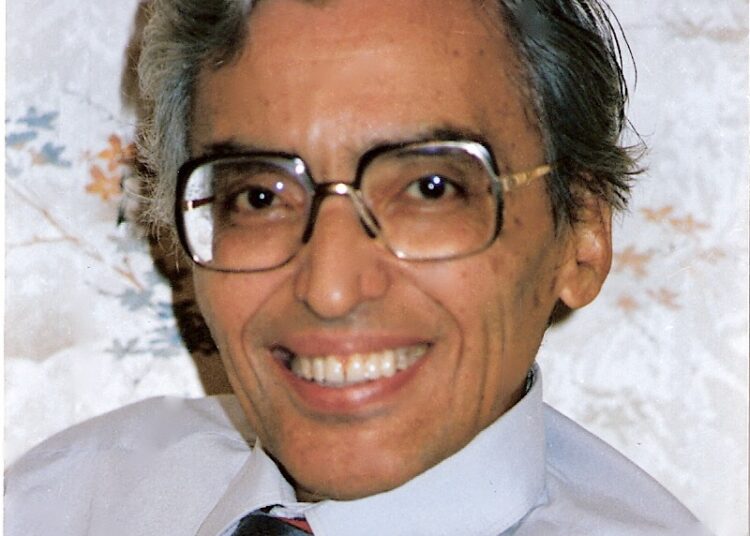As previously explained, Sayed Darwish (1892-1923) and Mohamed el-Qassabgi (1892-1966) led pop music in Egypt and the Arab world, while Yusef Greiss (1899-1961), Abu Bakr Khairat (1910-1963), Aziz el-Shawan (1916-1993), Rifaat Garrana (1924-2017) and Gamal Abdel Rahim (1924-1988) laid the foundation of classical composition.
Abdel Rahim, who studied history at Cairo University, was the first Egyptian to academically learn composition in a European country – Germany.
He developed a unique style combining oriental music and modern Western techniques.
Abdel Rahim, as a master of harmony, successfully intertwined the core Egyptian, traditional and popular, and oriental music in general, based on the original maqam (oriental chord) melodies.
In ‘Ana Bent El Sultan’ (I am the Sultan’s Daughter) for voice and piano, he masterly demonstrated his talent as a classical composer, who is an Egyptian to the core.
In another piece titled ‘Raqsat Isis’ (Dance of Isis), for flute, harp and percussions, he superbly revealed his musical style, which is based on simplicity and a high sense of harmony.
As a matter of fact, he used Egyptian folk percussion instruments like the tambourine, darbuka and bendir. However, he also drew on traditional Western instruments like the piano, violin and oboe.
For the piano, he wrote ‘Variations on an Egyptian Folksong’.
That piece proves his deep-rooted oriental style, which was enriched by his academic know-how.
Abdel Rahim drew on polyphony, which is a combination of two or more melodies. That could be easily traced in many of his works such as ‘Bohayrat al-Lotus’ (The Lotus Pond), for oboe and piano, and ‘Dance of Isis’.
We dare say Abdel Rahim had a nationalist identity in his composition style, which drew on the colorful plurality of maqams.
Banking on traditional Maqam Bayati, he composed his masterpiece ‘Improvisations on a Salesman’s Tune’, for cello solo.
He applied the very same approach in pieces like ‘Duo for violin and cello’ and ‘Trio for violin, cello, and piano’.
For solo violin, Abdel Rahim composed ‘Meditation’,
Abdel Rahim dearly contributed to the development of Arab classical music. He played a significant role in writing ballet music. While el-Shawan focused on symphonies and symphonic poems, Abdel Rahim was a pioneer of ballet music.
He wrote ‘Osiris Ballet’ in 1974, which marked a qualitative leap in the Egyptian and Arab ballet musical composition.
In 1980, he composed another Egyptian ballet titled ‘Hassan and Naima’.




